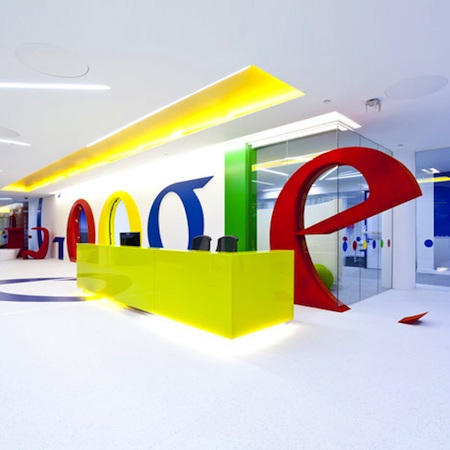

Google has hit back after the US Department of Justice (DoJ) filed an antitrust lawsuit against Alphabet’s Google division.
The DoJ alleged that Google abuses its position to maintain an illegal monopoly over search and search advertising.
But Google called the DoJ lawsuit “deeply flawed” and insisted that people had a choice of using different search engines, and were able to use different products from rival firms.
“Today’s lawsuit by the Department of Justice is deeply flawed,” Google tweeted. “People use Google because they choose to — not because they’re forced to or because they can’t find alternatives.”
It pointed out how easy it is switch search engines in Chrome, and it is very easy to download a rival search engine on Android.
It also pointed out that carriers and device makers are also free to preinstall competing apps and app stores.
Google then expanded up its response in a blog post by Kent Walker, SVP of global affairs at the firm.
“Today’s lawsuit by the Department of Justice is deeply flawed. People use Google because they choose to, not because they’re forced to, or because they can’t find alternatives,” wrote Walker.
“This lawsuit would do nothing to help consumers,” Walker added. “To the contrary, it would artificially prop up lower-quality search alternatives, raise phone prices, and make it harder for people to get the search services they want to use.”
And he then said the DoJ’s complaint “relies on dubious antitrust arguments to criticise our efforts to make Google Search easily available to people.”
“Yes, like countless other businesses, we pay to promote our services, just like a cereal brand might pay a supermarket to stock its products at the end of a row or on a shelf at eye level,” he wrote. “For digital services, when you first buy a device, it has a kind of home screen ‘eye level shelf.’ On mobile, that shelf is controlled by Apple, as well as companies like AT&T, Verizon, Samsung and LG. On desktop computers, that shelf space is overwhelmingly controlled by Microsoft.”
“So, we negotiate agreements with many of those companies for eye-level shelf space,” he wrote. “But let’s be clear – our competitors are readily available too, if you want to use them.”
He pointed out that Apple features Google Search in its Safari browser because they say Google is “the best.”
And Google doesn’t come preloaded on Windows devices. Instead, Microsoft preloads its Edge browser on Windows devices, where Bing is the default search engine.
On Android devices, Walker admitted Google has promotional agreements with carriers and device makers to feature Google services, so that it enable Google to distribute Android for free.
Walker populated his blog with videos showing how easy it is to download an alternative search engine on Android, or set a search engine in its Chrome web browser.
“We understand that with our success comes scrutiny, but we stand by our position,” said Walker. “American antitrust law is designed to promote innovation and help consumers, not tilt the playing field in favour of particular competitors or make it harder for people to get the services they want.”
“We’re confident that a court will conclude that this suit doesn’t square with either the facts or the law,” said Walker. “In the meantime, we remain absolutely focused on delivering the free services that help Americans every day. Because that’s what matters most.”
But it should be noted that Google had until now avoided regulatory sanctions in the United States.
And this has been a different case in Europe, where Google has amassed fines totalling $9bn for anticompetitive practices in recent years.
Google in 2017 for example was fined 2.4bn euros (£2.01bn) after the European Commission ruled that Google had thwarted rivals of shopping comparison websites.
Then in July 2018 the European Commission fined Google a record 4.3 billion euros (£3.83bn) for commercial practices related to its Android mobile operating system, the world’s highest ever antitrust penalty.
In March 2019 Google was fined 1.49bn euros (£1.3bn) by the European Commission over its AdSense advertising service.
Google continues to appeal all of these fines.
The DoJ is going after Google using the Sherman Act from 1890, in much the same way it pursued Microsoft in the late 1990s (Redmond survived intact) and AT&T in 1974 (which led to the breakup of the Bell System).
It is thus fair to say that this is a very serious challenge to Google and the DoJ lawsuit could lead to the break-up of the iconic company.
That said, the case is likely to drag on for years before any decision is reached and could result in a number of other legal actions against other big name tech firms (Facebook etc).
But what will be concerning for Google is the DoJ antitrust lawsuit is being supported by the Trump administration, as well as progressive Democrats such as US Senator Elizabeth Warren, who has repeatedly made clear she wants a breakup of big name tech firms.
Republicans complain that social media companies including Google stifle conservative viewpoints on their platforms.
Google’s battle to avoid a company breakup begins this week.
Binance BNB token rises after WSJ report the Trump family is in talks to secure…
After failed Amazon deal, iRobot warns there is “substantial doubt about the Company's ability to…
Community Notes testing across Facebook, Instagram and Threads to begin next week in US, using…
Complete 180. FTC attorney now says federal agency can pursuit Amazon trial, after citing “severe…
Former board member and respected chip industry veteran Lip-Bu Tan appointed to lead troubled US…
MPs demand secret High Court hearing be held in public, after government had ordered a…